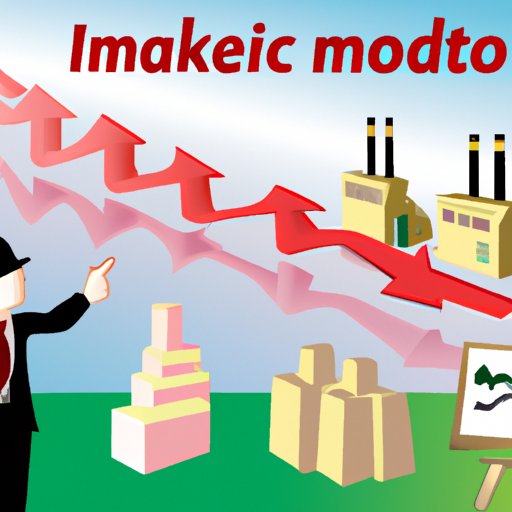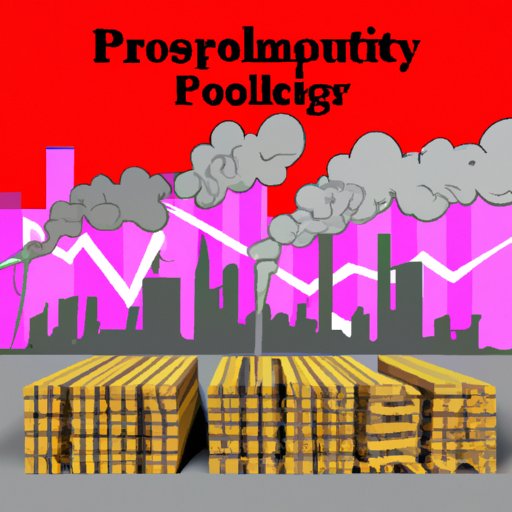Introduction
Overproduction is the production of a greater quantity of goods than there is demand for them. This can create an imbalance between supply and demand and lead to a decrease in prices and profits for businesses. In some cases, it can even lead to a collapse in the economy, as was the case during the Great Depression of the 1930s. The crash of 1929 was caused by a number of factors, but one of the most significant was the overproduction of goods.

Examine the Surge in Production and How it Created a False Demand for Goods
During the 1920s, there was a surge in production, as businesses sought to take advantage of the booming economy. Companies were producing more goods than consumers were buying, leading to an oversupply which drove down prices. However, this did not deter businesses from continuing to produce goods, as they believed that the high demand would eventually catch up with the supply. This belief was fuelled by speculation in the stock market, as investors were buying stocks in the hope of making a quick profit.
The problem was that this speculation created a false demand for goods, as investors were not actually buying the goods themselves. As a result, companies continued to produce more goods than consumers could buy, leading to an even bigger oversupply and further price drops.
Analyze How Overproduction Caused Prices to Drop and How This Affected Businesses
The overproduction of goods caused prices to drop significantly, which had a major impact on businesses. Many companies were unable to make a profit, as their costs were higher than the prices they could charge for their goods. This led to layoffs, wage cuts and bankruptcies, as businesses struggled to stay afloat.
The situation was made worse by foreign competition. Companies from other countries were able to produce goods at cheaper prices, due to lower wages and fewer regulations. This made it even harder for domestic companies to compete, as they were unable to match the low prices offered by their foreign competitors.
The economic downturn caused by overproduction had a devastating effect on employment levels and wages. Millions of people lost their jobs, while those who were still employed saw their wages fall. This had a negative impact on consumer spending, as people had less money to spend on goods and services.

Government Policies that Encouraged Overproduction
The government also played a role in encouraging overproduction, through policies such as tariffs and subsidies. Tariffs were taxes placed on imported goods, which made them more expensive and gave domestic producers an advantage in the market. Subsidies were payments made by the government to certain industries, often to encourage them to increase their production. These policies helped to keep prices artificially high, which led to businesses producing more goods than consumers could buy.
The government’s policies had a negative impact on businesses and consumers. They kept prices artificially high, which meant that businesses had to spend more on production and consumers had to pay more for goods. This put businesses under financial pressure and reduced consumer spending, both of which contributed to the economic downturn.
Conclusion
The overproduction of goods was one of the main causes of the crash of 1929 and the subsequent Great Depression. The surge in production was fuelled by speculation in the stock market and encouraged by government policies. This led to an oversupply of goods, which caused prices to drop and had a negative impact on businesses and consumers. To avoid a similar catastrophe in the future, governments should be careful not to encourage overproduction, and businesses should be aware of the dangers of producing more goods than consumers can buy.
(Note: Is this article not meeting your expectations? Do you have knowledge or insights to share? Unlock new opportunities and expand your reach by joining our authors team. Click Registration to join us and share your expertise with our readers.)
